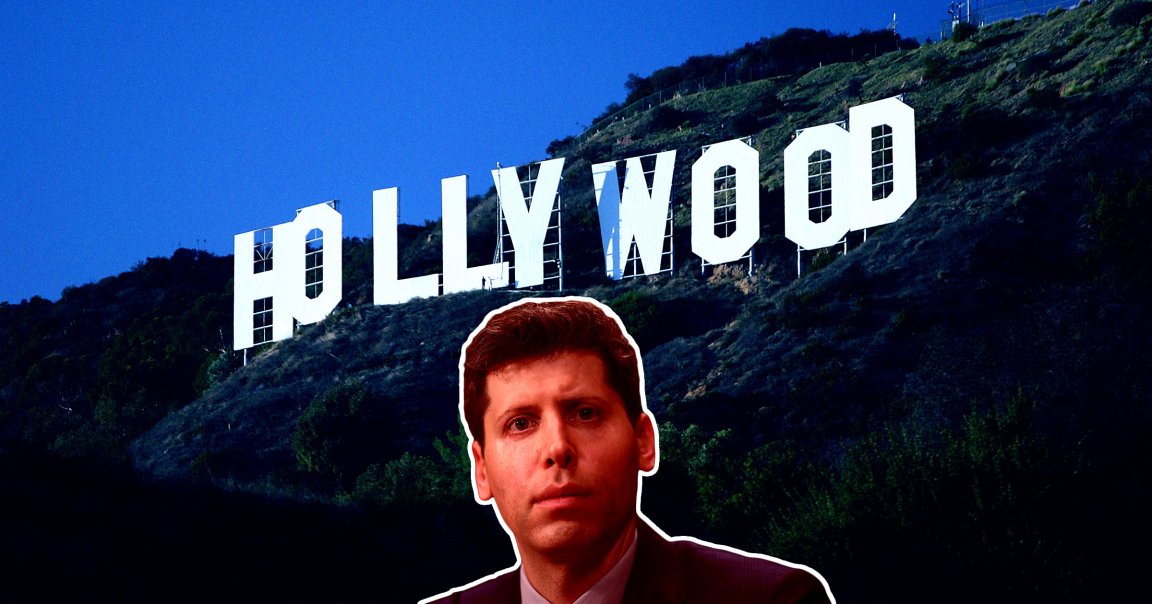
Earlier this month, OpenAI launched Sora 2, a text-to-video generating app designed to churn out AI-generated videos.
The app has become ground zero of copyright-infringing clips, from SpongeBob SquarePants taking a bong rip and sipping codeine to Scooby-Doo getting caught speeding on a highway.
OpenAI responded with some sloppily-implemented guardrails, which were initially met with exasperation — until, that is, mischief-makers realized they could easily be circumvented.
All that blatant disregard for copyright has seemingly put Hollywood agencies and studios on the back foot. Major talent agencies told the Hollywood Reporter that OpenAI had been “purposely misleading” them in behind-the-scenes communications.
According to THR‘s reporting, the company told some rightsholders that they’d have to opt out of having their work appearing on the app, while telling others the opposite.
In an October 3 blog post, CEO Sam Altman promised to “give rightsholders more granular control over generation of characters, similar to the opt-in model for likeness but with additional controls.”
But the damage was already done. Sora soared to the top of the App Store, a chart-topping launch facilitated by the promise of unfettered access to some of the most recognizable characters in media today.
Its initial messaging that talent agencies would have to individually notify OpenAI that their clients didn’t agree to have their likeness appear in the app was met with incredulity.
“It’s very likely that client would fire their agent,” a partner at WME, which represents actors such as Matthew McConaughey and Michael B Jordan, told THR. “None of us would make that call.”
The rampant reproduction of copyrighted material on Sora drew plenty of attention from Hollywood lobbying groups, with the Motion Picture Association blasting the company and calling for “immediate action.” LA-based talent and sports agency Creative Artists Agency also joined the chorus, calling Sora a “misuse” of emerging tech and “exploitation, not innovation.”
Many see OpenAI’s ask-for-forgiveness-later approach to copyright as a bait-and-switch.
“This was a very calculated set of moves he made,” an unnamed agency exec familiar with the chaos unfolding behind the scenes, told the Reporter. “They knew exactly what they were doing when they released this without protections and guardrails.”
Other experts pointed out OpenAI’s loose and misinformed interpretation of copyright law.
“They’re turning copyright on its head,” legal advisory firm Moses Singer partner Rob Rosenberg told THR. “They’re setting up this false bargain where they can do this unless you opt out. And if you didn’t, it’s your fault.”
According to the publication, talks “involving legal personnel” are ongoing and “litigation is being considered.”
Major Hollywood studios have already kicked off major legal action against AI image generator Midjourney for copyright infringement. AI company Anthropic also agreed to a blockbuster $1.5 billion settlement earlier this year after being caught red-handed training its models on pirated copies of copyrighted books.
The ongoing litigation hints at the possibility that OpenAI could soon transition from being an ally to an adversary in the eyes of rightsholders.
That could undermine the AI industry’s ability to sign partnerships with studios, further driving a wedge between companies like OpenAI and Hollywood.
“How are you coming to the industry expecting partnership?” the WME partner recalled telling OpenAI staff, per THR. “You quite literally set the bridge on fire.”
More on Sora: Sam Altman Says Copyright Holders Are Begging for Their Characters to Be Included in Sora